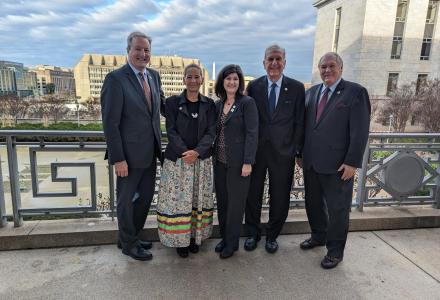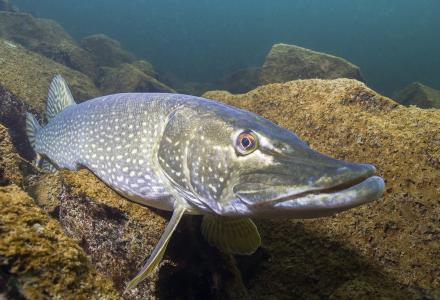

The 1972 Great Lakes Water Quality Agreement between Canada and the U.S. was amended in 2012 to, among other things, include a new annex to address climate change impacts.
The new annex commits the Parties (Canada and the U.S.) “to identify, quantify, understand, and predict the climate change impacts on the quality of the Waters of the Great Lakes” and to “sharing information that Great Lakes resource managers need to proactively address these impacts.”
As noted in the IJC’s recent First Triennial Assessment of Progress (TAP) under the agreement, phenomena linked to climate change over the last several decades includes reduced winter ice cover, increased summer temperatures and more frequent and intense storms.
Canada and the U.S. have taken a significant number of domestic actions related to climate change in the years since the Agreement was last updated, the TAP report found. One of the most important was a 2015 State of Climate Change Science in the Great Lakes Basin report, which captured available science on impacts, inventoried assessment methods and summarized more than 250 studies.
In implementing the annex, the two countries have addressed science commitments related to climate change impacts, cooperated successfully on numerous measurement and communications projects and met implementation timelines.

Still, the Commission found in its TAP report that more emphasis must be placed on moving from science to action. Studies have identified climate change impacts in the basin, but more work is needed to adapt to the stresses this puts on people and infrastructure in the basin. Governments need to be better prepared.
The IJC’s Great Lakes Water Quality Board examined adaptation in a 2017 report, finding that most jurisdictions have a climate change policy or plan in place, but mitigation (such as reducing emissions) is more common than adaptation or resiliency planning.
And adaptation initiatives need to be integrated with other programs like stormwater management, since more frequent and intense storms are expected to increase sewer overflows in cities on both sides of the border.
More extreme precipitation events also mean more variability in lake levels, so land use planning and zoning needs to safeguard shoreline and coastal regions. This is an area where the IJC takes advice from its Great Lakes-St. Lawrence River Adaptive Management Committee, which looks at flows and levels.
In line with the Water Quality Board’s work, the TAP recommends that the Parties:
- Demonstrate global leadership by jointly developing, in cooperation with other government jurisdictions, including indigenous governments and organizations in the Great Lakes, a binational approach to climate change adaptation and resilience in the Great Lakes
- Invest in a binational vulnerability assessment, defining the risks posed by climate change and providing technical support for measures to adapt to climate change, to engage stakeholders and all orders of government, and to identify priorities for responsive actions in the Great Lakes region
- Recognize the impacts of climate change on water infrastructure and provide support to communities to proactively and systematically improve the capacity to respond to extreme storm events, especially as related to combined sewer overflows, planning, zoning and adaptation.
Specific climate projections and likely environmental impacts in the Great Lakes region can be found below, in a portion of a chart from the TAP report and based on work by the Water Quality Board (see pages 147-149 for the full chart).


Jeff Kart is executive editor of the Shared Waters IJC newsletter and a contractor to the US Section of the International Joint Commission in Washington, D.C.



